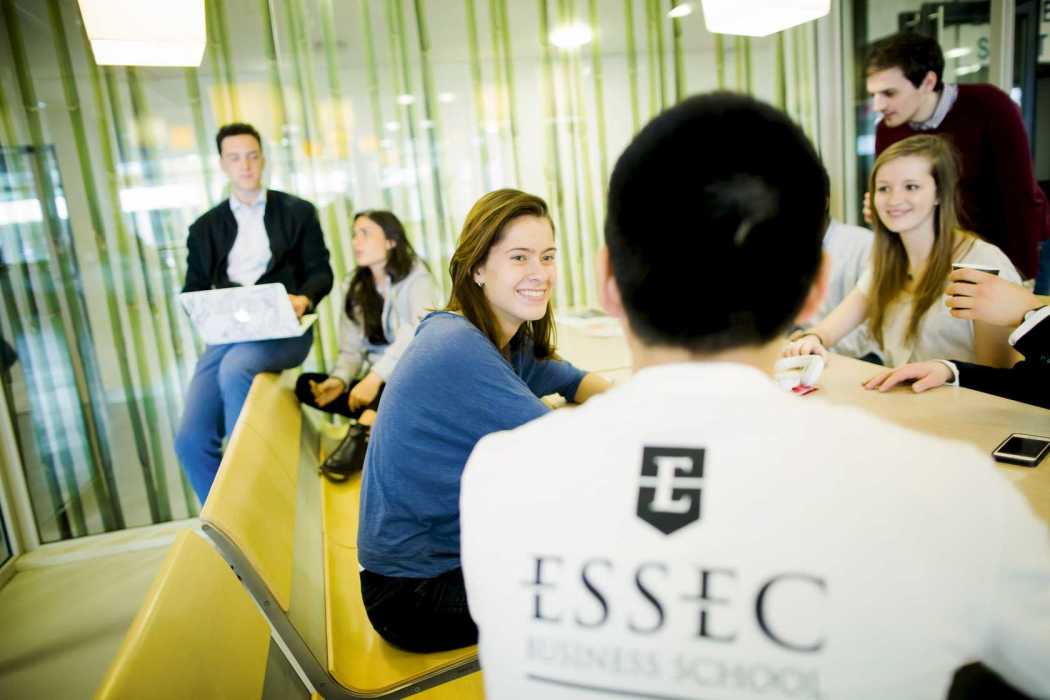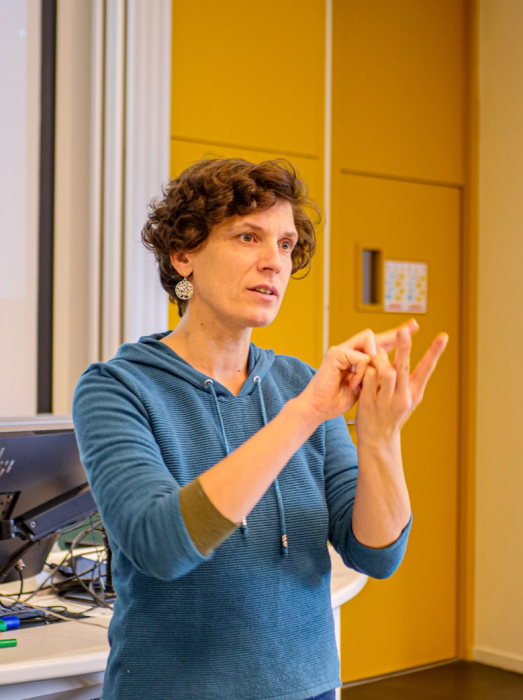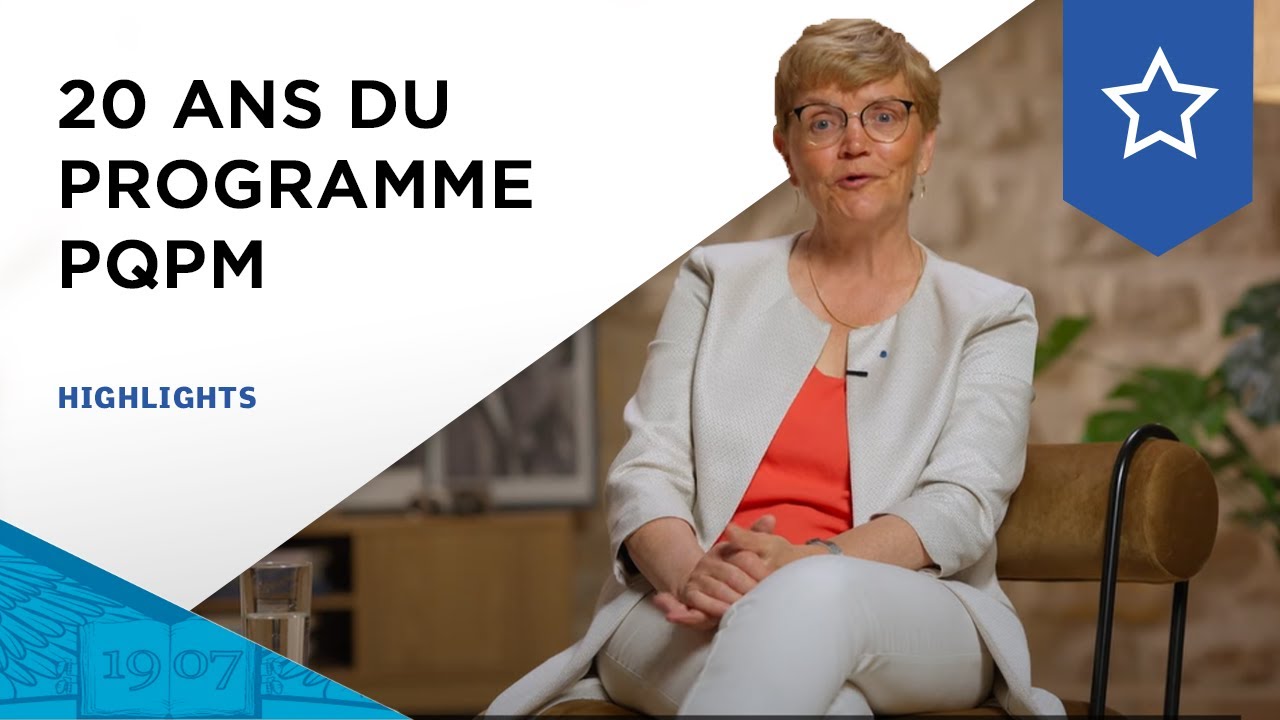ESSEC Business School has been committed to equality, diversity and inclusion for many years. It was one of the first schools to open its doors to female students in 1970. Today, one out of two ESSEC students is a woman. This is just one aspect of its commitments. Over the years, ESSEC has set up and supported numerous initiatives, notably through its Center for Equality, Diversity and Inclusion, where students are actors, drivers and beneficiaries of these changes.
Get involved in a cause through a student organization
By joining one of the student organizations that are involved each year in social initiatives and actions, you will be able to make a contribution to important social issues.
Find out more about the civic organizations:
ALMA, Each One ESSEC, Enactus ESSEC, ESSEC CLUB ROTARACT, He for She ESSEC, Noise ESSEC, UN’ESSEC, UNITE

Become an agent of change by participating in the Diversity Fresco
Designed in 2019 by ESSEC Business School in partnership with Belugames, a company specializing in educational games and collaborative work, the Diversity Fresco intends to take a stand in the fight against discrimination in the same way that the renowned Climate Fresco stands for climate issues.
It offers a framework for debate to better understand the cognitive biases that lead to discrimination and its consequences, in order to promote more inclusive behaviors.

Commitment and accessibility
Through its Handi'Capacités mission, ESSEC has been committed to the issue of disability for many years. The school is committed to facilitating access to its premises, classes, competitions and exams, events and accommodation to enable everyone to develop and learn in total serenity. This includes adaptations of our various campuses and the installation of equipment to facilitate students' educational progress.
As ESSEC students and participants, you can also take part in the ESSEC Disability & Talent program each year. It leads to an ESSEC certificate that will enable you to show companies that you have a real understanding of the issues related to disability management.

Become a tutor for PQPM - A grande école, why not me?
Since 2003, the PQPM (Une grande école : Pourquoi Pas Moi) program provides support to more than 300 middle and high school students from working-class backgrounds in the Paris region in their preparation for higher education and the professional world.
Like the PHARES program, which promotes access to higher education for young people with disabilities, this program works thanks to our student-tutors, who are all volunteers. By becoming a tutor, you lead weekly tutoring sessions for one year. This experience is very rewarding and is also an opportunity to develop your professional skills. It also offers the satisfaction of contributing to a meaningful social cause. Involvement in tutoring is recognized in your course of study and leads to the accreditation of one month of professional experience.

Higher Education Charter of Commitment with L'Autre Cercle
ESSEC Business School has been a signatory of L’Autre Cercle's commitment charter since June 27, 2024, during Pride Month. This commitment reflects our determination to promote LGBT+ inclusion and diversity within our community. The charter, developed through the collaboration of our Human Resources teams and the Equality Diversity and Inclusion Center, aims to create a safe and respectful environment for all. Together, we strengthen our commitment to support each individual in reaching their full potential.

The Center for Equality, Diversity and Inclusion at ESSEC Business School aims to broaden the social openness of its Master in Management program.
The CAP ESSEC initiative allows us to increase the recruitment of talent from all social and geographical backgrounds. It consists of assisting students with scholarships and those from modest backgrounds in their efforts to sit the school's competitive entrance exams.
In addition, ESSEC has been experimenting with the "Double Oral Call" since 2022: this allows a maximum of 40 additional eligible candidates to compete in the oral exams (their total points obtained in the written exams remain unchanged).
To broaden the school's appeal to talented students from all social backgrounds, the ESSEC Foundation provides funding for social scholarships. Scholarship students of the Master in Management or the Global BBA are identified by ESSEC based on social criteria, according to their family income and the CROUS level. Since 2011, over 2,000 students have benefited from this support.
The Respect for Others Charter is a general code of conduct that promotes respect for each person's ideas and words, as well as their physical and moral integrity, both on ESSEC's campuses and beyond academia. It is the ethical foundation for all ESSEC Group employees. It is dedicated to combating all hateful actions and all forms of discrimination - sexist, racist, LGBTphobic, etc. The charter concerns the entire ESSEC community, regardless of campus, regardless of status: student, participant, teacher, speaker, collaborator, partner.
As a community, we must adhere to and observe the following behavioral principles:
-
Adopt a caring attitude toward others in all contexts of activity: academic, educational, festive and professional events and on social networks.
-
Respect each person's right to speak during group work, team meetings, and campus events; do not abruptly cut off another person, do not yell, do not speak when it is their turn, and work to ensure that the other person can actually speak.
-
Respect the opinions, values, and identity of others in their differences (gender, sexual orientation (LGBT), age, origin, language, religion, opinion, political affiliation, etc.).
-
Avoid intolerant, sarcastic or contemptuous language.
-
Do not use abusive, insulting, inappropriate or rude language and especially avoid sexist and/ or lewd language and inappropriate behavior.
-
Do not harass another, either morally or sexually, it being understood that it is the recipient of the comment or behavior who is in a position to judge whether they feel it is insulting, inappropriate or improper.
An online reporting platform has been set up to facilitate the reporting to the administration of cases of violations of the Respect for OthersCharter. This platform is available 24 hours a day and can be used by both students and faculty and staff members.
A few days after they start school and throughout their studies, the school's 2,200 first-time students are made aware of issues related to gender-based and sexual violence. This is done through a variety of ways: interactive plays, webinars, quizzes, workshops, etc. In addition, the offices of the student organizations are trained on issues of respect for others and on the institution's internal policy. They receive specific training on gender-based and sexual violence that enables them to carry out their duties, especially when organizing festive events.
More broadly, the ambition is to develop in our students the skills to become fully inclusive managers. Our pedagogy is evolving along these lines. Themes related to the respect of others and inclusive management are now part of the curriculum, particularly in classes on law and organizational behavior.
Finally, the members of the ESSEC Executive Committee have also received specific training on gender-based and sexual violence. They all participated in a diversity and inclusion seminar, based on a Diversity Fresco workshop.
ESSEC's historic commitment to gender equality, and more broadly to diversity and inclusion, is now expressed in a multi-year plan that addresses the following five major areas:
-
Develop a strong human capital policy in terms of professional equality,
-
Commit to a greater mix of tracks and programs,
-
Raise the profile of Gender research and pursue Women's empowerment,
-
Take action against sexism and the fight against gender-based and sexual violence as part of a global policy for the respect of others,
-
Practice and instill a culture of inclusion within the school.
Law No. 2018-771 of September 5, 2018 on the freedom to choose one's professional future included new provisions to end the wage gap between women and men.
French companies with more than 50 employees must produce and communicate their "Gender Equality Index" every year.
This index includes five indicators calculated on a total of 100 points.
It measures various data in terms of professional equality:
-
Pay gap;
-
Gap in the proportion of women and men increased;
-
Gap in the proportion of women and men promoted;
-
Systematic pay increase of women in the year of maternity leave;
-
Number of women among the company's ten highest earners.
With an overall score of 88/100 in 2025 (for 2024 data), ESSEC has demonstrated its strong commitment to professional equality.
This result can be broken down, by indicator, as follows:
Pay gap indicator: 33/40
Rate-of-increase gap indicator: 20/20
Promotion rate gap indicator: 15/15
Return from maternity leave indicator: 15/15
High pay indicator: 5/10
